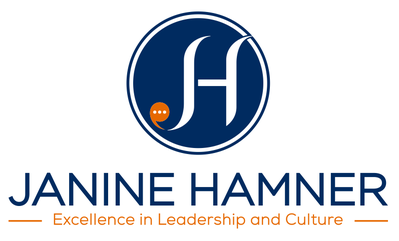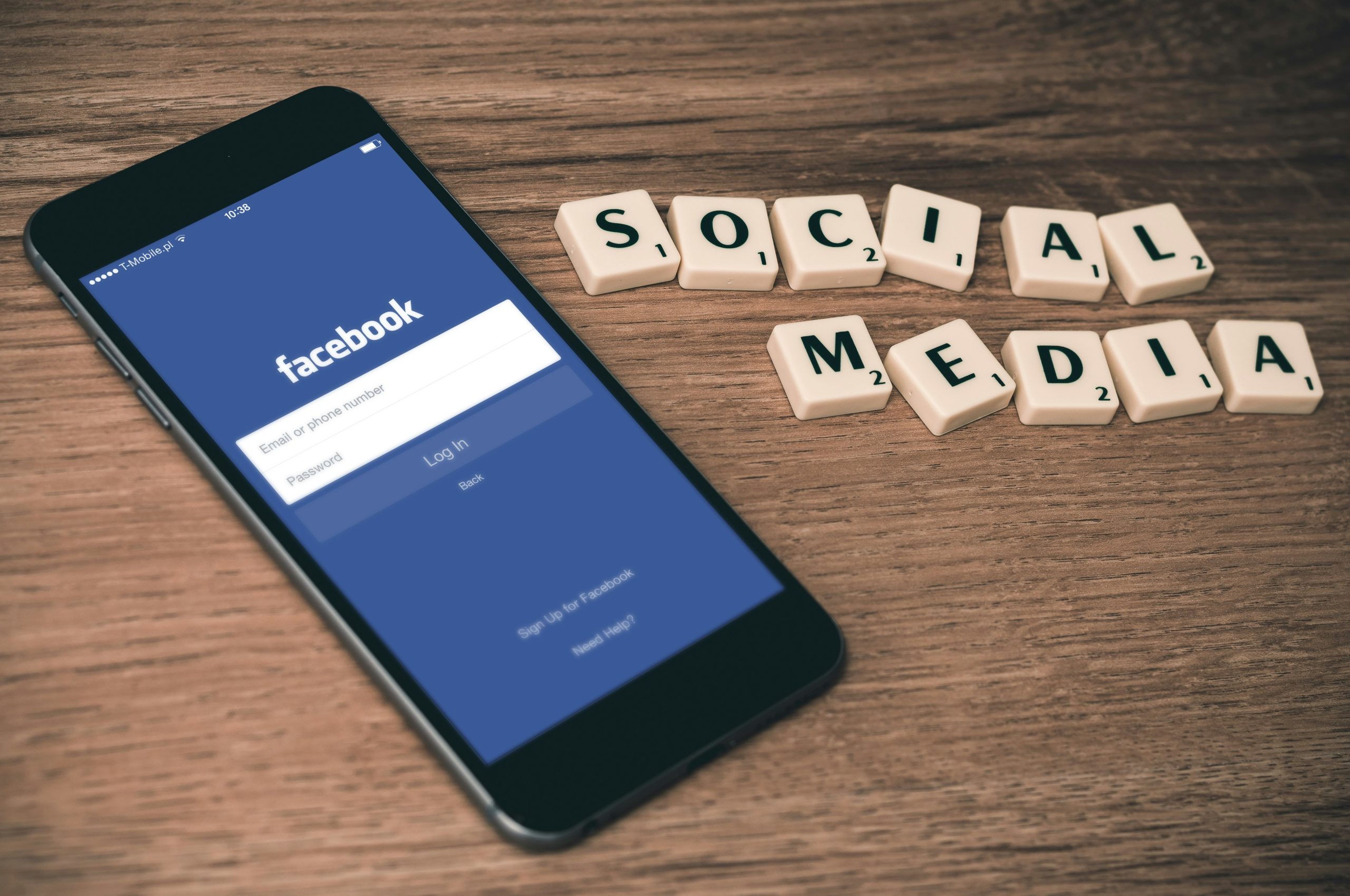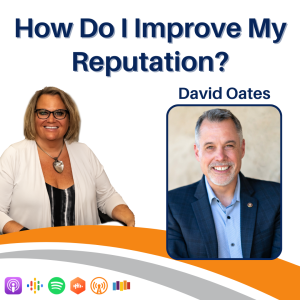
How aware are you of the digital and social media presence of your business? Have you tapped into the conversations happening about you online? In this episode, Janine Hamner Holman sits down with David Oates, a crisis PR expert, to discuss how businesses need to lean in and listen to the conversations about them in the digital world.
GUEST: David Oates | LinkedIn, Instagram
HOST: Janine Hamner Holman | [email protected] | LinkedIn, Facebook, Instagram
Happy New Year and welcome to this new format, with an introduction straight to our guest on The Cost of Not Paying Attention. Today’s guest is Dave Oates, a crisis PR expert with 30 years of helping organizations of all sizes deal with a broad range of issues, such as mass layoffs, large-scale accidents, workplace violence, product recall, and inappropriate acts by executives. So much fun stuff. Dave, thank you for being with us.
I appreciate it. It’s great to see you.
Great to see you. What is something you or your clients have been failing to pay attention to in their business and what’s the cost of that inattention? What’s the problem that inattention is causing?
The biggest one, and it happens to organizations of all shapes and sizes, from the mom-and-pop shops on Main Street to the big corporate conglomerates, is they don’t pay attention to what people are saying about them online.
I see it time and again, somebody is chirping about a division, department, boss, supervisor, or company on TikTok, Instagram, LinkedIn, Facebook, Glassdoor, Yelp, Google, or Facebook. It could be hours, days, or weeks before they see the post. At that point, those comments, if they’re not responded to and addressed by the entity quickly, become fact by the sheer reality that no one has checked it.

Right? Nobody has said, “Nope, that’s not how that happened.”
In fact, because they didn’t know about it, their silence gives the perception of some truth there. Otherwise, they would’ve said something. I say to organizations all the time in speeches, talks, and workshops, “Don’t be the last person to know somebody’s chirping about you online. Good or bad, you should know about it.”
But oftentimes I get a call and something’s been up for about a month. It’s now viral and the way they find out about it is because their customers don’t come back as frequently as they did before. Business partners start saying, “Hey, what is this thing I’m seeing that somebody brought to my attention? What is it that you’re talking about?”
Then I get a call because it’s affecting operations, top-line revenue, and profitability. Employers haven’t heard anything but what somebody else outside is talking about. The costs are top line, bottom line, employee retention, recruitment, and all aspects of your business because someone didn’t know somebody else was taking a potshot at you on a digital platform.
I want to unpack this a bit because part of what’s difficult for organizations to get their head around or think about is there are so many different platforms out there. There are so many places somebody could go to say something maybe less than positive about an organization. How do you know which ones are the important ones to be monitoring?
Great question. It’ll come down to a couple of things. First off, you’ll want to know where the bulk of your audience is. If you are a veterinarian and you have an office facility catering to an affluent area of a neighborhood, you should be on Nextdoor. Then Yelp, Google, and Facebook.
Those are the platforms said audience tends to use. If you are in a cool nightclub scene that caters to the twenties and thirties, you probably don’t have to worry about Facebook too much. Grandma and Grandpa are not going to that location. You should be on TikTok, maybe Insta, and maybe Snap.
Those entities are ones you’re going to want to pay attention to, to see what’s going on there. Pick where your audiences lie. You can do surveys if you want to. They don’t have to be detailed or expensive, but you should know where your audience is.
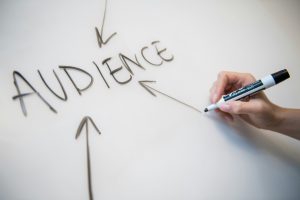
Depending on what type of business you’re in, you probably already have a social media presence. Maybe you don’t use it to the maximum promotional benefit, but you should at least know where your customers, business partners, and other people frequenting your establishment virtually or physically are talking about you.
Even if you’re not sure, some platforms will do the searching for you and they will search across all of those entities. Some of them are freemium, they’ve got a free sort of account you can have that’s very basic, and then they’re tiered pricing as you get a bit more robust depending on your needs.
I’m a big fan of Google Alerts. If you don’t do anything else, Put in the keywords of your name and entity and you can set it where within two hours of somebody posting a comment, you’re going to get an alert on that one. It’s not challenging once you know what to do to be the one to figure out where to find out when somebody’s talking about you.
Awesome. One of my clients has a person who has set up a website that is watchdogging them. I made it a point to get to know that person, to bring that person to the organization, have a tour, and meet the leaders of the organization to feel like they have an opportunity to engage. They have my cell phone number.
Is that an effective strategy in general, if there are leaders in the opposition or who are watchdogging your organization… many organizations are doing things with the community on ultra alert for them, whether they need to be or not, and making connections in those communities. Is that a smart strategy?
If I hear the question correctly, the opportunity is if others help in the search and alert you to different comments and questions. The answer is yes. Build a tribe. This isn’t only in a crisis communications mode. This should be what all organizations try to do to grow their business.
Build a customer base and client base. Whether you’re B2B, nonprofit, or you’ve got the next great widget somebody’s selling on Amazon, you’re going to build your brand to endear you to a client base that sings your praises and tells others why they should own your product. If they bought into your brand, when somebody takes exception to something you may or may not have done, the hope is they’ll alert you to it and help defend you if it’s worth being defended.
Keep in mind, no organization gets it right 100% of the time. Everybody messes up, we’re humans. We are far from perfect.
We are fallible creatures.
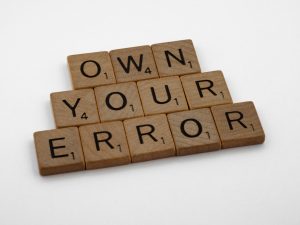
Absolutely. I tell people I live in a large glass house, so I try to keep my stone-throwing to a minimum. That said, I see it where you are alerted to something like that and you immediately go into defense mode. You’re argumentative and you shout back the entity to refute whatever it is they’re claiming because it’s been taken completely out of context.
It’s hyperbolic. Now you’re the second coming of Satan and so forth. As my grandmother said, there are three sides to every story. Yours, mine, and the truth. Oftentimes there may be a modicum effect about something you didn’t do to meet the expectations of a client. It’s blown out of proportion and it’s crazy what people are saying about you.
If you own that in your response in an empathetic and action-oriented manner, not only will your message resonate with that audience member or those around them, but others, those who’ve alerted you to the problem, will come to your rescue. They will feel somebody is out of bounds and will check them without you playing the bad guy. That’s part of good business. Have you seen It’s a Wonderful Life?
Absolutely. One of my favorites.
George is sitting there in the bank and when people find out he is in trouble, everybody comes to help. That’s the tribe you find when you build a good brand and you’re open, honest, and empathetic.
In the movie, he did. He wondered if it was something he should own up to. When he finally reached a decision, he decided to face the music and fix the mistake.
If you’re a good company and good people trying to do the right things… everyone stumbles. It’s how you respond and how people will respond to you when you do.
I love that point, it’s one of the things… I was with a group of CEOs earlier this week, and one of the things we talked about is this buzzword around vulnerability and authenticity. Those are great words, but what the opportunity is, is ultimately to own it when we fall down, to own it when we make a mistake.
Because when we can do that, when we can get out of our own way and be human enough to admit our part in the problem. Own it, accept it, learn from the mistakes, make new mistakes next time, and stop making the same mistakes. Then people get that you are being human, that you are owning your part of it, that you are accepting accountability.
I was talking with the CEO of a large organization today, and he spoke about some of his business partners having a hard time owning their piece of things. They want to deflect.
When we can own it, even if we’re only owning 10% of it, when we can own that piece of it, it humanizes us. It takes the temperature down in the room and helps people see you more as a fallible person rather than a big bad corporation.
I use the phrase confidently vulnerable. Confidently vulnerable is the term, and I don’t take credit for coining that phrase. It was a friend who does some wonderful nonprofit work for some at-risk individuals going through hard times. That friend has a lived experience, and she said when she talks to that audience, she opens up about her experiences, which then endears her to the people with whom she’s trying to build a connection.

It was poignant in our discussion, because in this day and age where anybody can spout a comment in anger with great emotion on social media, it’s hard for business owners, nonprofit owners, leaders, mom-and-pop shops, and family-run businesses to be able to withstand what seems like an overwhelming onslaught of negativity.
Our natural reaction is to defend ourselves. If you can open a little with empathy and action… Those are two cardinal responses I tell organizations of all shapes and sizes, no matter the crisis, you have to respond with empathy and action. If you can do that and be a little bit confidently vulnerable, then people will feel you’re hurt.
My observation is people get angry and start to post things on social media or spout something to the news organizations because they are fearful of the situation ahead. They’re scared to death. They feel overwhelmed, hopeless, and voiceless. If left unchecked that fear turns to anger and if it’s anger directed at an entity, their job is to try to reduce that anger and lower the temperature.
You lower the temperature by telling them they’ve been heard and telling them how you’re going to fix the situation. That also applies when there are situations where the claims have zero basis. Even if there’s no modicum of truth to the allegations, you still need to give recognition.
Does it mean you’re necessarily going to change the tone, tenor, and belief of the person making the accusations? No, but everybody around will give you, more often than not, proper space. When you don’t get the space, that is when you go into fight or flight mode. You meet that emotion with the same emotion. You meet the allegations with an equal amount of allegations. “I’m not the second coming to Satan. I’m the second coming to the Messiah, okay?” Again, we’re all humans in our imperfections.
Think about those when you respond. It’s against human nature. We do not do well in conflict. We’re not able to ground ourselves and take that in conflict because we feel we need to protect ourselves. That’s an inherent court of belief. We have to retool at least the communications brain in the professional sphere to combat a crisis.
That’s true even if it’s not a crisis. I was in conversation with about 40 CEOs around a huge open set of tables, and someone had done a presentation on what’s happening in the real estate industry. Somehow we got from there to what’s happening in the world of work, how alone people feel, and how people are looking to their organizations as a place to belong. When they’re not getting it from their organization, they get mad and act out.
We also discussed how mental health has taken a big hit through COVID-19. We haven’t responded well to that. We got into this conversation with a huge age range, a huge gender and sexual orientation range, and lots of different humans in the room with many different opinions. You could see some people desperately wanted to fight for their position.
We have become so positional and oppositional. It was largely a group of attorneys and we’ve become so litigious with each other. We got into this whole thing about that. At the end of it, one of the things I was talking about is we have the opportunity as leaders, as CEOs to model something different, to model being confidently vulnerable, to be willing to take a hit and know it’s not personal.
One of my very best friends works with what she calls angry neighbors. For example, Verizon is putting up a transmission pole in a neighborhood, and that neighborhood’s not very happy. Those are the angry neighbors she works with on behalf of Verizon in this instance.

One of her mantras for herself is Q-tip. Quit taking it personally. So much of it is not personal, it’s because people are frustrated. It’s because people are afraid.
I agree. We’ve shown society has a limit to how much information we can absorb at any given time. The fact we all have these wonderful little personal devices allowing us to not only be broadcasters but to receive a plethora of information overwhelms us. That’s scary to begin with. Add to it that depending on the type of platforms, you have this fear of missing out or fear of not keeping up because the postings people show of their lives are always perfect. They’re always…
This is the highlight reel.
The relationships are perfect.
They’re beautiful. Everybody’s in love…
The cat and dog are perfect. The house is perfect, the job is perfect. What a bunch of BS.
It scares the rest of us because we all know our lives are not that way. Even if you could tell people their lives are not that way, it still freaks the bejesus out of us. Now we’ve got a situation where we’re scared to death and overwhelmed. What we’ve done is tried, because we have the capability with our internet access, TV, YouTube, and mobile devices, to filter content that confirms our bias.
Don’t give us opposing viewpoints, don’t give us different perspectives. Don’t allow us to engage in civil discourse. I’m already freaked out about something you’re telling me I might not have. Give me something that tells me you’re good, you’re safe, and I’ve had it in my own personal life. It’s how we live right now.
When there’s a piece of information that shines a light, that you may not have this all correct, and whether that’s in business, whether that’s how you conduct your customer relations or your partner relations, let alone your personal relations, you get angry and overwhelmed. We scream and holler. We take sides. We get into our fighting stance and we duke it out.
The reason my business continues to be in demand is because of more than that. At some point, I think because we continue to have these types of conversations, I do see hope at the end for this, but I don’t see it anytime soon because of the nature of how we prefer to do business. We prefer to do business by texting and posting.
I wish we would knock that off. The juice of doing business is doing business with people we like. I’ve fired clients because I didn’t enjoy working with them. I have the opportunity because I have my own business. What makes business work, what makes commerce work, and what makes our economy work is we do business with people and companies we like, which is then back to your point of why we have to be paying attention to what’s being said about our organization.
I was going to go back to that. This is why organizations need to be attuned to what people are chattering online. You had said beforehand, there are opportunities not even in a crisis mode, to sort of see the bellwethers, the red flags going off when somebody’s not happy.
It may seem like it’s coming out of left field, it may seem like it’s insignificant. It may also seem to be irrelevant. If somebody’s claiming something outrageous it could seem small, but they’ve got a platform by which to articulate that to people.
It becomes the truth, or it becomes that much more expensive for you to try to correct. Keeping an eye on that, and monitoring those conversations does a world of good to stave off the miscommunications and misperceptions.
Let’s not just talk about my world, which is crisis PR where everybody’s screaming and hollering. I heard a great line. I got my MBA 20 years ago, and one of the best things I heard in the entrepreneurial class I took was, the next great business idea is when you go to a party and you hear people complaining about something or you’re starting to chirp or they’re annoyed about something, there’s a business in there, or at least there’s some sort of service you can offer.
Look at it not only as a chore of having to keep track of Instagram. There’s also an opportunity to find another line of business and revenue that could be extremely lucrative. Think about it as good old-fashioned market research in a digital age.

It could also make you even more sticky with the clients you already have.
Absolutely right. If they know you are talking to them and listening… why do people scream and holler online? They feel voiceless. They feel disenfranchised. They feel helpless. If they know you’re listening to them because they’re starting to cheer about something online that’s not a crisis yet…
You’re able to say, “Hey, I think we got something for you. Let’s help with that.” They weren’t even addressing you. They were shouting at the moon out of frustration that came and went in their head. They’ll love you for it.
Now you have a friend for life. In thinking about this interview, one of the things I realized is I am not paying attention to my social media presence. I have somebody who’s doing that for me. I trust her. I’m wondering… I do have a Google alert for my name. I don’t have a Google alert for my business’s name, but I have it for me. I’m not monitoring my own presence online. Am I missing an important opportunity as the business owner, as the face of the company?
I would say set up a Google alert on your business name, and any keyword you use. If you use it in your elevator pitch include the keyword. For me, I’m Dave Oates. I’m a crisis PR guy. My company is PR Security Service, Dave Oates, crisis PR, PR security service. That should be some alerts you have on there. You can put those all in the same search. I want Dave Oates, crisis PR, and then maybe a second one I do is PR security service. That should cover you.
It doesn’t have to be extensive and exhaustive, but you should look at how people engage you. What do they call you when they engage you? Do they call you by your first name or do they call you by your company name? Do they call you by the job you do or the role you are in? Then you probably need alerts on those. Google’s got some great free content that’ll tell you how to set that up. You don’t have to reinvent the wheel, and you don’t have to be a social media expert to do it, but you do have to do it because you need to know what people are saying about you.
Awesome. We were talking earlier about some services where you pay as you go, you pay as you get higher up in things. Is there a good place somebody could start doing that, setting those kinds of alerts to know what people are saying on whatever platforms?
Absolutely. First off, if you’re a local mom-and-pop business, if you’re on Main Street USA, you’ve got a coffee shop or a restaurant or some entity like that, or you’re a one-truck plumber, who’s making gobs of money from that one job. If you’ve got a website, Google alerts should be just fine. Don’t worry about all the other things. You’re probably not using social media depending on the neighborhoods you serve.
If you’re limited to a certain geographic area, maybe a couple of Nextdoors and things like that. Keep an eye on that. If you’re something bigger, you’re a regional entity, you’ve got multiple locations, or you sell to different markets, you might want to think about some other tools. There are tons of them. Hootsuite is one I do, TweetDeck, and Sprout Social, and they may cost a bit, but if you’re a sophisticated operation with several dozen employees, it’s probably worth the investment to know what people are saying about you, not only for crisis situations, but for market research as well.
By the way, that’s not just for customers and partners, but your employees, because your employees are your most valuable marketing asset. They’re the ones talking to customers far more than you are. They’re the ones who are making things happen. If you don’t keep them informed, they feel voiceless and disenfranchised.
That translates to core engagements with the people you need to come into your virtual or physical front door to stay in business. My example was from several years ago, do you remember that passenger on the United Airlines flight who got dragged off of the plane in Chicago, and it became a big social media?
United put out a press release, and it abdicated itself of any wrongdoing because law enforcement was the one who dragged the passenger off, and nobody told any of the employees what was going on.
Imagine being that front desk clerk at O’Hare when a passenger’s coming in to check in their bags. Imagine how that person’s day was all day long.
You’d think, “What the heck is going on with this stupid company?”
I have no idea what’s going on. No one’s talked to me, right? All I know is what I saw on the news. That person feels like they were left hanging out on a skinny limb and holding on for dear life, praying the day is over quickly.
In a situation like that, in a big organization, something happens in one part of the company. What should the organization do in terms of letting its people know what’s going on so its employees don’t have to answer questions where either they look idiotic or where they’re saying the wrong thing or whether then they’re getting mad at the company or whatever the situation is?
If it’s a big event that’s starting to blow up all over social media and make the news organizations have to respond, you need to respond quickly to the press, and you need to respond quickly to your customers and emails and social media and all that, and you should do that as soon as you can with proper messages. Again, empathetic and action-oriented messages, you know what it looks like. You’re sorry that it’s happening. That doesn’t mean you have to admit fault when there’s no fault of yours, but you have to acknowledge this is not good and you’re going to take care of it, which is the action.

As you’re sending out information to the general public or ideally beforehand, send information to your employees. Apologize for the questions they’re going to be asked. Tell them what you’re doing about it, and give them the information they can pass on to customers.
Tell them who to pass questions and problems along to. Organizations are going to have to set up the flow of communications and how they field those inquiries.
If you’re a large entity like United Airlines, that means direct them to the FAQ page you need up on the website. You need to have somebody updating the page. You have to put out video announcements with your CEO on YouTube, Instagram, Facebook, and all the other social media channels to tell people what’s going on. As you do that, there should be a video telling employees, this is what we’re doing and this is why.
If you can catch a breath for a minute, hold a virtual town hall meeting. Field those questions from employees. They know what your customers are going to ask you. They know what the business partners are going to say, the persons who are bringing the food trucks to the aircraft to resupply them. They know what’s going to happen, and they will pepper you with questions that are going to be so valuable in creating good, authentic, empathetic, and action-oriented responses that then you can use for all the other means.
By the way, your employees will be able to use it when they’re talking about that. This takes training. This is as important as any disaster recovery initiative planning strategy you have in place for if your systems get hit by ransomware, if a plant goes down because you lose power, if some accident occurs. I’ve seen it time and time again, these are the kinds of things we all should train on.
I know we don’t, because we think about all the other priorities, and we think the probability of something like that occurring is lower than it is. These are the things to be done because when it goes bad, it goes bad quickly, and the time to figure out what to say is not when it’s occurring.
You and I are in a similar conundrum in that people want to bring on crisis PR when there’s a crisis. People want to bring on organizational development consultants when there’s a problem with their employees, when they’re having too much turnover, when there’s HR issues, or litigation is happening, or there’s a problem they’re trying to solve. As you said, the best time to solve the problem is before the problem happens because then you’re mitigating.
You’re absolutely right. I get called in when the house is figuratively, if not literally on fire, that’s nine times out of 10, and that’s fine. There’s still an opportunity to help, but it’s going to take longer. It’s going to cost you more in terms of lost revenue, lost profitability, and increased costs. It will detract your business from its core operations because now you’re devoting resources to answering the mail, and the longer you delay an adequate response, the more costly that gets. It’s exponential too.
Moreover, if you wait a significant amount of time, you stand a good chance of never getting that business back because a competitor will take full advantage of the opportunity. It doesn’t have to be a highly competitive market. You could be in a niche play creating some finite widget for the shipbuilding industry, the aviation industry, or the defense industry.
I guarantee you, somebody’s going to figure out how to build something fast to take your business away if necessary. They’ve got a large pain point, they can replicate that product and then go to the client and say, “Here’s our advantage. We’re not them.”
“We don’t bring their baggage.”
When you think about Volkswagen, British Petroleum, and Exxon, and you think about these companies with public gaffes, you think about things happening in the entertainment industry. Much would have been saved if training had happened, if running scenarios had happened beforehand versus in the aftermath and cleanup.
It’s always more expensive after the fact to deal with the problems that come about because of misdeeds. When I did political work, I would always say, figure out what your problem is and hang a lantern on it. “Here’s the issue. I got pulled over for drunk driving when I was 18, and here are all the things I’ve learned from it.” You own the problem, and then you move past it, and people buy that because it’s honest and it’s authentic, and everybody has messed up.
It takes two things. It takes, as we talked about before, being confidently vulnerable. Oftentimes, it’ll take somebody else who has an outside point of view. I speak from personal experience as well as professional experience. Sometimes we’re not the best judge of our decision-making capabilities in times of stress. We believe things aren’t necessarily as they appear, and therefore we skirt this line without necessarily causing a lot of at least upfront pain.
The reality, though, is the less you are engaged in that directly, the more pain you defer later on with interest that comes back. If we agree to the notion that people are shouting and screaming at you because they’re scared and you respond in kind, the lizard brain takes over. You’re the squirrel that is almost right across the road that then at the last minute turns around and runs right in front of the vehicle to their demise.
Be confidently vulnerable, and get other people in there who aren’t yes people to give you an objective point of view as to where you’re at.
It’s one of the things, I was writing earlier today about diversity and how diversity has become this political conversation in business. Diversity is not a political conversation in business. Diversity is a business conversation. In business, when we have diversity of opinion, when we have diversity of lived experience, when we have diversity of thought, we make better decisions.

According to McKinsey, the 800-pound gorilla in the world of organizational consultants, more diverse businesses are 36% more profitable in bottom line profit than companies that are. This is not a political left, right, center conversation. This is a business conversation, and it’s the same thing with thinking about communications and PR.
It scares the ever-loving crap out of most people. We’re overwhelmed by this, we’re overwhelmed by the perspective. It feels like we have no control over anything. We filter our information offline and online to things that confirm our bias. That means a lot of times, in our personal and professional lives, we are far more comfortable with hanging out with people who think like us, act like us, do the same things, have the same interests, and have the same points of view.
We cut ourselves off from getting a wide range of points of view and perspectives that make us all stronger, but you have to be that confidently vulnerable to do that.
Understandably, it’s challenging for a lot of businesses that may on the outside be doing very well, and they’re still profitable, they’re creating jobs, and they’ve got valuable products and services. But, everybody marches to the next quarter, are we going to meet the numbers we need to because here’s the goal, and we’ve got this overhead and I’ve got dozens if not hundreds of mouths to feed within this entity.
You get overwhelmed with the stress you bring with you people who think like you. You think, “I’ve worked with this person for 20 years and they’ve been great. They’ve been in the same industry, and we worked side by side, and they think exactly like me. We went to college together, we hung out there.”
That’s great, and that person should be on your team. Be sure to have others you may not know who have experiences that will be just as valuable. Be a little vulnerable and you’ll see and hear more.
Those other people who think differently will see things you don’t, they will see conversations and opportunities, but they’ll also see pitfalls, and you’ll be able to navigate through that.
Amen. Dave, this has been a great conversation. Is there anything you were hoping we would touch on? This has been such a deep, rich conversation. Thank you so much.
It’s my pleasure. This is a treat. Thanks, Janine, for the opportunity to have a conversation with you and for the audience. Don’t be afraid to listen to others. Don’t be afraid to hear what people say. If they’re mad at you, that’s fine. If they’re still talking about you, there’s an opportunity there and you can get through it. That’s where I’ll leave it for now. Janine, this has been a treat. Thanks for having me on.
You’re more than welcome. I am Janine Hamner Holman, and this has been The Cost of Not Paying Attention. Remember, great leaders make great teams. Until next time.
Important Links
Golden rules of crisis PR management
About David Oates
 Dave Oates is a Crisis PR expert with 30 years of experience in the field. He helps organizations repair their brand’s reputation in the press and online. As a U.S. Navy Public Affairs Officer and a corporate PR professional, he dealt with a broad range of Crisis PR issues. These included mass layoffs, large-scale accidents, product recalls, inappropriate acts by executives, and more.
Dave Oates is a Crisis PR expert with 30 years of experience in the field. He helps organizations repair their brand’s reputation in the press and online. As a U.S. Navy Public Affairs Officer and a corporate PR professional, he dealt with a broad range of Crisis PR issues. These included mass layoffs, large-scale accidents, product recalls, inappropriate acts by executives, and more.
Dave has also authored several Amazon eBooks on Crisis Communications for particular instances and also produced four LinkedIn learning courses in Crisis Communications.
Dave Oates is an Accredited Public Relations (APR) specialist. He received his MBA from San Diego State University and a B.A. degree from the University of Maryland. He is also a Past President of the San Diego Rotary and served as a Lecturing Professor at San Diego State.
